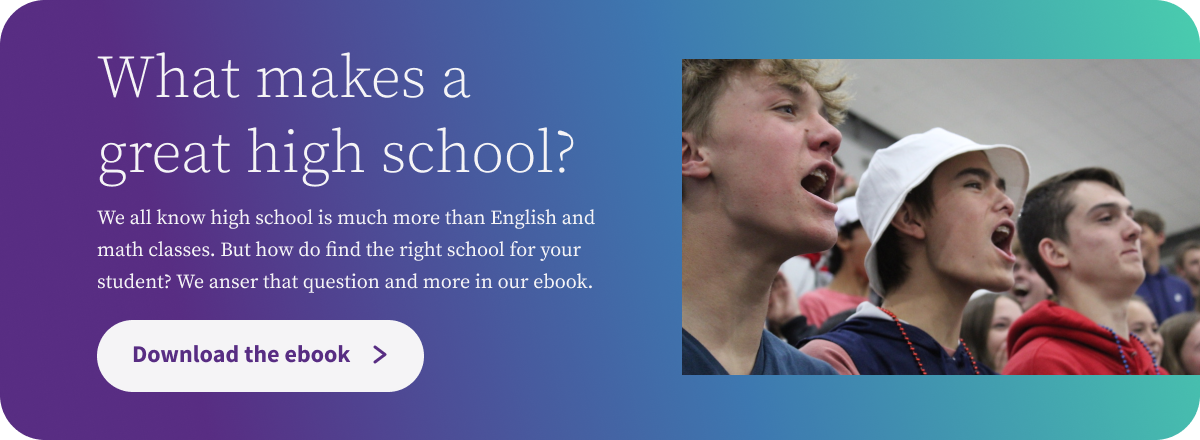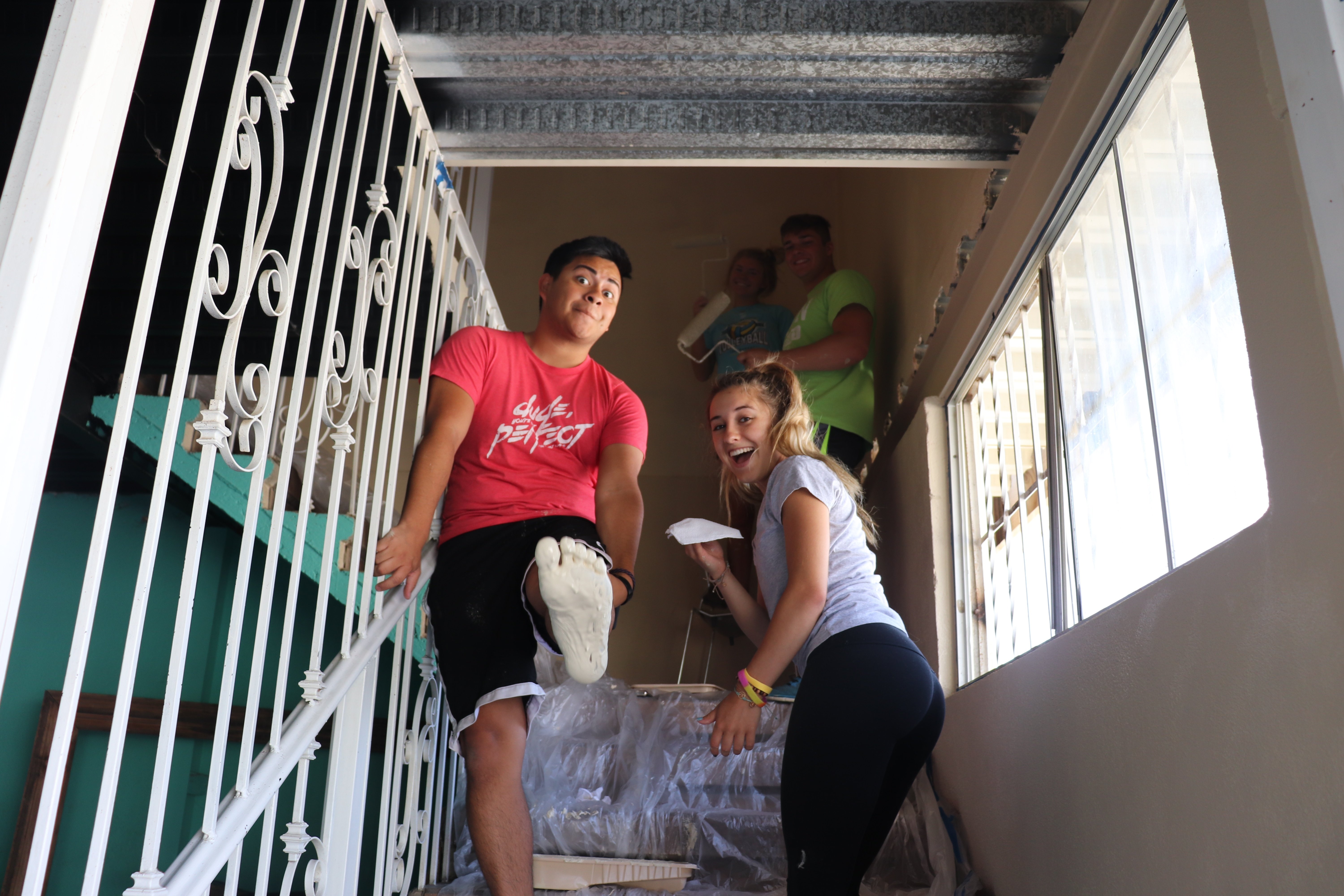Bridging the Pandemic Gap
High schools can help students move forward from their middle school years of remote learning and the long-term effects of pandemic learning. Let's dive in.
BY Hannah Buchholz
EAB (a research and consulting group) recently released an article analyzing the long-term impacts of pandemic learning on high school and college-aged students. The statistics they uncovered shed light on significant trends:
- 54% of students are less likely to enroll at a college or university after high school.
- Educational foundation gaps widened, with 75% of students failing to reach reading proficiency in subsequent grades.
- Of the high school students not pursuing college after graduation in 2023, 20% said it was because college is “not worth the cost of attending.” This is up from 8% in 2019.
For those planning to attend college, affordability and the promise of gaining work experience are key priorities. Students are looking for colleges with a strong career service department with a reputation of successful job placement of their graduates.
Students are also craving in-person events. In 2022, colleges reported a 38% increase in students attending on-campus events and experiences. In the article, EAB writes, “The eagerness for physical interaction and engagement among students presents a promising opportunity for institutions to foster a sense of belonging on campus.”

This data solidifies what many have suspected:
- The landscape post-high school is shifting.
- Students crave a tangible community of peers and mentors. They seek belonging beyond the confines of social media or virtual spaces.
- High schools and parents should work in tangent to equip students for life beyond graduation. Grades, while important, matter less than teaching life skills such as resilience.
The Post High School Landscape is Changing
Is going into debt for a college degree worth it? Will a college degree help me get the job I want? These are questions high school students and their guidance counselors are wrestling with. The answer, once a resounding “yes” is now a more hesitant “it depends.”
High schoolers may or may not know what they want to do with their lives career-wise. Entering college without clear career goals can lead to financial strain. According to our College and Career Advisor Denise Noffze, students who plan to go into education or nursing stick to their plan. Otherwise, students tend to default to studying business which may or may not be a fit.
At Lutheran High, our College and Career Advisors prioritize guiding students based on their interests and strengths. We use tools like the YouScience aptitude test, which can give students direction on career options. Starting off the conversation by talking about strengths and interests instead of first discussing college or major options gives guidance on choosing the correct next step.
Encouraging career exploration, providing access to vocational training programs, and offering guidance on alternative post-secondary options are valuable initiatives to support students in making well-informed decisions. Additionally, facilitating discussions about financial literacy, debt management, and career pathways can help students evaluate the pros and cons of different educational and career paths.
More Than Ever, In-Person Community Matters
You can only get so much out of a community on a screen. Humans were made to share up close and personal experiences. What do you remember about high school? High-fiving your teammates after a great goal? Jumping up and down, bumping shoulders with your friends in the student section? Dancing in the chorus line in sync with the rest of your castmates during the annual school musical? Passing gum to your lab partner during class?
Traditional school works because students get to spend 8+ hours a day with their friends while they’re taught by trusted adults.
As mentioned earlier, the EAB article shared that while on-campus attendance was up, attendance at virtual events was down by 58%. The article elaborated on the importance of students having a sense or belonging. “Research consistently tells us that a student’s sense of belonging on campus is crucial for student success, persistence, and mental health.”
Active and engaged learning is one component of student belonging. Presentations can be recorded and shared, but they are more engaging in a classroom. Discussions can happen on a message board, but they are more productive in a classroom. Students can virtually raise their hand on Zoom, but the Q&A format is more helpful in a classroom.
Think again back to high school. When you needed someone else to talk to, who were the trusted adults in your life? At LuHi, every teacher will advise your student from a biblical perspective. We also have a mental health counselor on staff who is available to meet with students as needed.
High schoolers crave community—we all do. The healthiest community is one people consistently show up to in person. You can read more about why LuHi values community here.
Preparing for Life After High School
The EAB article refers to Gen Z as Generation Pandemic (Gen P) because of the myriad of stressors they faced during the pandemic. Stressors ranged from academic pressures to societal uncertainties.
At LuHi, we aim to characterize this generation based on more than just having experienced the pandemic.
High schools have the opportunity to partner with parents to cultivate resilience in their students. They will face adversity in their lives. They already have. We get to help them build a foundation of strength and determination to depend on when things go sideways.
Teachers, school administrators, and parents can work together by:
- Holding students accountable.
- Modeling effective communication and conflict resolution skills.
- Helping students discern good boundaries and choices.
- Encouraging rhythms of rest, time with family and friends, and work (school, sports, or otherwise).
- Teaching students to view challenges as growth opportunities.
- Reminding them that their identity is in Christ, not what they do or what they’ve been through.

Bridging the Pandemic Gap
Remote learning caused social isolation, stress on relationships, and disruption in learning. Today's students have a gap in maturity and academic preparedness. Educators can help bridge that gap.
Students will have to work harder than their predecessors to make up lost time. But, highly relational learning environments taught by highly talented teachers ease that burden. Highly talented teachers offer support and engaging spaces to help students catch up. High school students are extremely capable of adapting, learning, and overcoming their circumstances. Highly relational teachers know how to hold students up to higher standards. This can be done by:
- Giving students ways to pursue their passions and get a jump start on their college or career goals. Two ways LuHi does this is through The Academies and dual credit enrollment options.
- Creating a support system for each student. For example, at LuHi we have a Deans Team that keeps an eye on excessive student absences and a Dean of Academics who helps make a plan for students to get back on track academically if they are on the verge of failing.
Moving Forward
High school students often rise to meet the high expectations put on them. But they will also sink to our low expectations if we continue to tell them they are only a product of their unfortunate circumstances. At LuHi, we aim to empower students to pursue their post-high school educational goals. We desire our students to be resilient, backed by a strong Christ-centered community.



.png)
